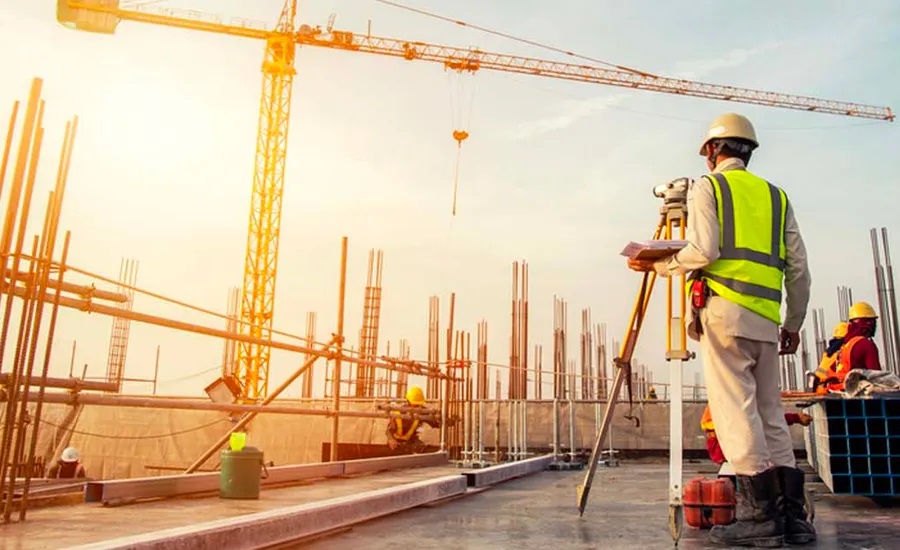The Construction Industry
Imagine for a moment a world without “ Engineers “. A world without safe water to drink, sewers, waste and sewage treatment; electricity and gas supplies, telecommunications, roads, railways, airports, canals, schools, hospitals, offices, shops and factories, and you see a world without the construction professional. You see a world without civilization.
The construction industry is an essential pillar of modern civilization, playing a crucial role in shaping the physical infrastructure that sustains our societies. Imagine, if you will, a world devoid of engineers and construction professionals—a world where the very foundations of our modern way of life crumble. In such a world, the absence of these dedicated individuals would mean no access to safe drinking water, no effective waste and sewage treatment systems, no reliable supply of electricity and gas, no means of communication through telecommunications, and no extensive networks of roads, railways, airports, canals, or other transportation systems. Additionally, the absence of construction professionals would mean the absence of educational institutions, hospitals, offices, shops, and factories—essentially stripping away the foundations of our civilization.
The construction industry is a multifaceted and complex realm, comprising various interconnected professions and activities. It requires a wide range of skills, knowledge, coordination, and expertise to successfully bring projects to fruition. Unlike manufacturing, which primarily involves the production of goods in a controlled environment, construction involves the creation of physical structures and infrastructure within the unpredictable and ever-changing context of the real world. This fundamental difference presents unique challenges that necessitate specialized approaches and strategies.
Construction professionals, such as architects, civil engineers, project managers, and construction workers, collaborate harmoniously to transform abstract concepts into tangible realities. They are responsible for envisioning, designing, planning, and executing projects that encompass a vast array of sectors, including residential, commercial, industrial, and infrastructure development. From the initial stages of conceptualization and design, to the procurement of materials, the management of construction sites, and the coordination of various contractors and tradespeople, the construction industry is a dynamic and intricate field.
Moreover, construction professionals are tasked with ensuring that projects are not only aesthetically pleasing, but also structurally sound, safe, and environmentally sustainable. They must adhere to building codes, regulations, and standards to guarantee the durability, functionality, and safety of the structures they create. This requires a comprehensive understanding of materials, structural engineering principles, environmental considerations, and evolving technological advancements.
UAE Construction Market Overview
The UAE construction market covers the growing construction projects in different sectors, like commercial construction, residential construction, industrial construction, infrastructure (transportation construction), and energy and utility construction.
Dubai is a regional and global leader in terms of infrastructure development and other industries such as tourism and real estate.
The UAE construction market is expected to register a CAGR of 5.5% over the forecast period, 2019-2024.
Construction activity in Dubai is estimated to remain robust in the next two years with developments related to Expo 2020 being one of the main factors driving the sector growth.
The construction market has managed to remain stable and present a positive trend in 2016-2017.
In November 2017, the combined value of the 11,755 active construction projects in the United Arab Emirates has exceeded USD 818.2 billion (around Dh 3 trillion), accounting for 33% of total value and 52% of all construction activity in the GCC region as a whole.
All active construction projects in the GCC region come out to a staggering USD 2.43 trillion (AED 8.91 trillion). The total value of UAE’s contract awards in 2018 has been USD 31.6 billion till September 2018, while in 2017 it amounted to USD 28.6 billion.
A major reason for the booming construction industry in Dubai is the low construction cost owing to its diversified economy, compared to all other developed countries. The middle east region has got a huge number of productive and skilled laborers, resulting in massive iconic constructions in Dubai.
Currently, Dubai attracts a lot of positive attention, owing to the numerous ongoing infrastructure projects to accommodate the needs of big upcoming events, such as Expo 2020.
The Expo 2020 has deemed as a substantial boost for the region’s tourism. In that direction, the United Arab Emirates has kicked off large-scale leisure projects, such as new hotels, Dubai South, and Dubailand.
According to the latest data, the total value of major expo-related construction projects reached AED 156 billion (USD 42.5 billion) by the end of March 31, 2018, driven by both public and private sectors.
A majority of these projects are poised to complete before the expo begins in October 2020, resulting in massive job creation as well. The development of Expo 2020 projects will create a low-level skyline, in comparison to the skyscrapers dominating Northern Dubai.
In 2017, AED 11 billion worth of contracts were awarded by Expo 2020. The Industry data showed that the total value of the top 10 active projects linked to Expo 2020 exceeded AED 120 billion (USD 32.7 billion) as of March 31, 2018.
Another trend impacting UAE construction is smart cities. This strategy will be implemented across the UAE with a major focus on Dubai.
By 2021, the UAE government plans on making Dubai the world’s smartest city. Everything from smart transportation solutions to free, pan-city high-speed Wi-Fi will be implemented to help enhance Dubai’s reputation and investment capabilities.
About 1,000 government services will be smart-enabled, 2,000 wi-fi hotspots will be installed, and a savings of USD 5.9 billion is expected from Dubai’s new transportation initiatives. This strategy is meant to attract global businesses, tourists, and workers.
The heavy public investment in infrastructure can eventually stimulate also the private sector and create great momentum for the entire market. This is a decisive step toward the ultimate goal of breaking the total dependency of the Middle East construction market from oil.
According to Dubai Chamber
1- Infrastructure high quality infrastructure score : UAE has achieved high quality infrastructure score at lower ratios of public spending to GDP, indicating efficient public spending.
Dubai has prioritized infrastructure development in its diversification drive, this is reflected in the government spending. In 2019, infrastructure spending amounted to US$ 2.5 bln (AED 9.2 bln), which account for about 16% of the total budget expenditure.
Energy and utility projects dominated the approximate total value of Dubai infrastructure projects that either under construction or in the pipeline.
Expo 2020 related infrastructure projects mainly transport are under construction or completed. Among the major infrastructure projects is Dubai-Abu Dhabi hyper loop transport link, which will be completed in many phases. In the pipeline is Sheikh Zayed Double decking road US$ 2.7 bln.
2- Commercial Construction Commercial projects mainly hotels and retail shops, continue to dominate Dubai commercial construction segment pipeline projects in the coming few years. It outperforms other construction subsectors by a significant margin.
3- Residential Construction Very high ongoing construction activity, with private sector predominate the segment investments.
4- Industrial Construction Industrial construction projects are the accounting for about 3% of the total number of construction projects and about 1% of the construction segment total value.


